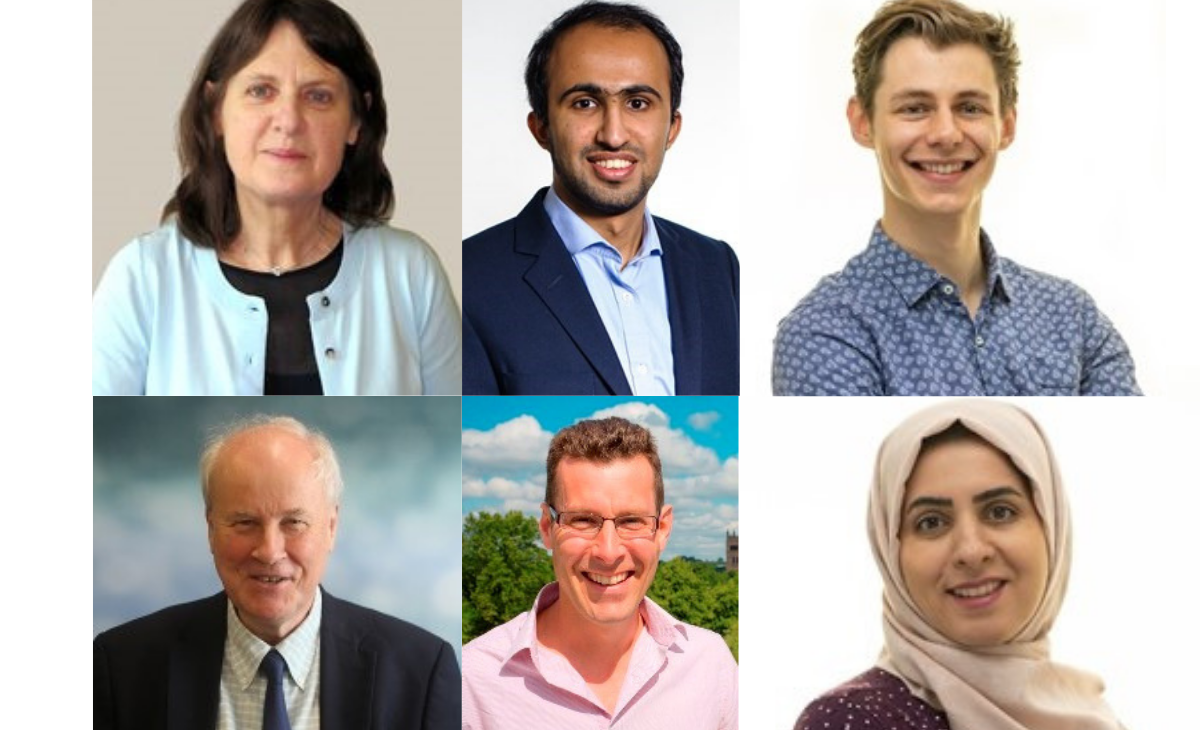
N8 University scientists have received big honours for their work exploring the very small.
Professors Richard Keith Ellis and Professor Simon Cornish from the University of Durham and Professor Irian Grigorieva of the University of Manchester have been chosen for awards from the Institute of Physics, the UK and Ireland’s professional body for practising physicists.
And Dr Richard Grant, Dr Shima Ghasemi and Dr Abbas Al-Shimany of Creavo Medical Technologies who studied at Leeds and Sheffield universities, have, working as a team, won an early career research medal.
Professor Ellis received the Paul Dirac Medal, one of the Institute’s premier awards, and Prof Cornish received the Joseph Thomson Medal, the third consecutive time this award has gone to a Durham researcher.
Prof Ellis was honoured for his work in quantum chromodynamics (QCD), where he performed many of the key calculations that led to the acceptance of QCD as the correct theory of strong interaction. He is Director of the Institute for Particle Physics Phenomenology.
Prof Cornish was recognised for his contributions to experiments on ultra-cold atoms and molecules, in particular, the formation of matter-wave solitons and ultra-cold ground state molecules and their interactions. He is Head of Durham University’s Quantum Light and Matter research section.
Prof Grigorieva won the David Tabor Medal for her distinguished and distinctive contributions to research on physics of two-dimensional materials and nanotechnology, including magnetism, superconductivity and electron transport in graphene, related 2D crystals and their heterostructures.
Dr Richard Grant, Dr Shima Ghasemi and Dr Abbas Al-Shimary won the Clifford Paterson Medal and Prize for the development and application of sensors and algorithms to detect and analyse the magnetic field of the heart for the rule-out of cardiac conditions.
Dr Grant gained his BSc, MSc and PhD at the University of Sheffield where he is Honorary Research Fellow; Dr Ghasemi, studied for both her MSc and PhD at the University of Leeds, where she also taught; and Dr Al-Shimary was awarded his PhD by the University of Leeds.
The Institute of Physics (IOP) is the UK and Ireland’s professional body for practising physicists, and has a rich history of supporting and nurturing talent, providing learning resources to schools, colleges and higher education institutions (HEIs), and of advising science and education policy makers.
Its awards recognise, celebrate and reflect the impact and applications of physics in everyday life, the breadth of the discipline in academia, industry and medicine, and its impact in extraordinary human achievements.
They include awards for technicians, school teachers, researchers at all career stages and levels of academic achievement, and from across the HEI spectrum.
Professor Dame Julia Higgins, Institute of Physics President, said:
“As we move rapidly into an ever more technological era, it is so important to encourage, foster and support today’s and tomorrow’s scientists, science teachers and technicians.
“They enable us to live the comfortable, healthy, well-connected lives we have become accustomed to, and they explore new boundaries to enrich our knowledge of the world we inhabit.”
All award winners will be celebrated at the Institute’s annual Awards Dinner, to be held this year on Tuesday 19 November at the Royal Lancaster London Hotel, where they will be presented by the President with their medal, a prize of £1,000 and a certificate.